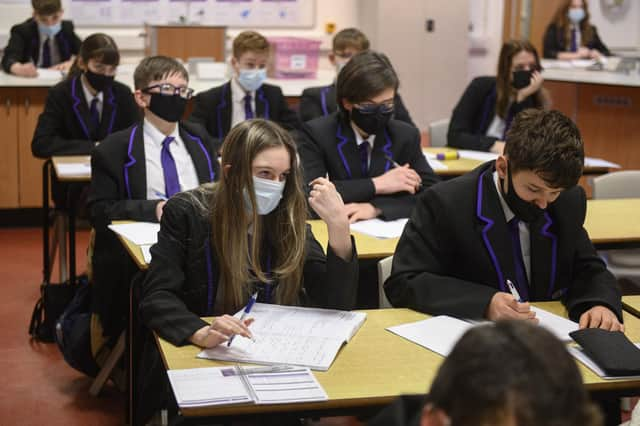REV OLIVER COSS COLUMN: Slow down to change your life


Rumours of mild illness matched against increased transmissibility is far better than our odds have been in more than 20 months now, and had it not been for Christmas and New Year and the inevitable inter-generational mixing it brought, it might not have seemed so unfavourable when it first emerged.
There are going to be some very harsh bumps along the way.
Our clinicians and medical practitioners have been deeply wounded and traumatised by Covid-19.
Advertisement
Hide AdAdvertisement
Hide AdThe suggestion that we might ‘let it rip’ will cause a terrible, Pavlovian reaction for many who, working in the caring professions, need to be cared for far better.
Teachers and educators are naturally concerned that the rapid spread among children and young people will cause unprecedented disruption in schools, with the Department for Education advising they simply combine classes if staff shortages arise.
If ever there was an illustration that government just doesn’t understand education, then this is probably it. Doubling your class size multiplies the workload by several factors, and it shouldn’t be implemented just for the sake of a fatalistic need to keep going or keep open.
And employers were warned by Government this week to prepare for an absence rate of 25% over the coming weeks, which makes me wonder what sort of employer could function long-term with a quarter of their employees off sick; possibly (even probably) for longer periods than the seven-day period it’s alleged Covid takes to clear a person.
So, it’s going to be intensely stressful.
Advertisement
Hide AdAdvertisement
Hide AdAnd while we might blame Covid-19 for all of this, and the present need to survive without social or economic life-support, we could – if we choose – meet much of what’s going to come at us halfway.
And that’s to build our teams, our work, our businesses, schools, hospitals, our institutions, councils and lives in a way that respects this and shows that we’ve planned for it.
The great problem is that we run our services and economy very hot.
Amid a desperate need to prove value-for-money, or to magic a profit out of thin air, our businesses and institutions all too often run their human resources on a shoe-string.
Advertisement
Hide AdAdvertisement
Hide AdI know the Church of England is like that, as individual clergy often find themselves working alone, running one or many parishes, in situations where it’s increasingly difficult to arrange cover when you’re ill or taking time off.
So what happens when the shoestring snaps? If we genuinely are going to choose now as the right time to ‘learn to live alongside the virus’, then we should meet it halfway, de-stress our working environments, our services and our society so that bits of it, at least, cease to resemble a railway station McDonald’s at rush-hour.
We need to slow down and do this one piece at a time, if not for ourselves then for the others in our lives.
Archbishop Thabo Makgoba, the present successor of Archbishop Desmond Tutu, was asked recently what prophetic message South Africa still needed to hear.
“The importance of loving one another,” he replied.
Advertisement
Hide AdAdvertisement
Hide AdIt’s not a new message, in fact it’s one that people like me have been banging on about for two millennia, but it strikes me that nothing about living alongside the virus would be worse if we chose to do this more habitually in the way we run our lives.
It would be the advent of meaningful support, long-awaited, that might get us through.